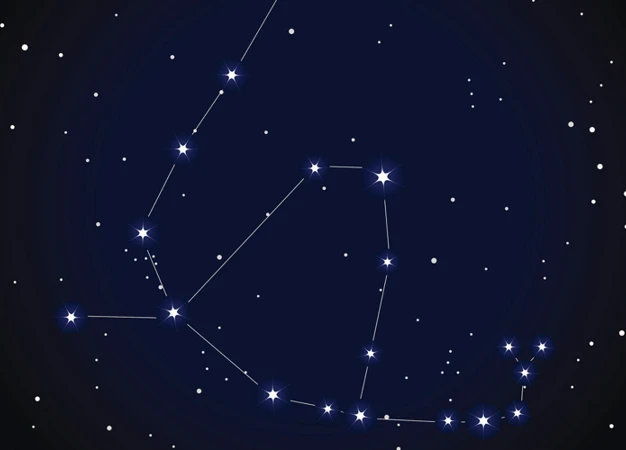Have you heard about the supposed new zodiac sign called Ophiuchus? If so, you’re not alone. There has been a recent uproar and confusion surrounding Ophiuchus, with many people believing that it is a newly discovered zodiac sign. However, this is far from the truth. In this article, we will delve into the Ophiuchus controversy and debunk some of the common misconceptions surrounding it. From understanding its true symbolism and historical context to exploring its impact on horoscope readings and astrology compatibility, we will provide you with the facts and insights needed to navigate this enigmatic subject. So, let’s set the record straight and dispel the myths about Ophiuchus once and for all.
What is Ophiuchus?
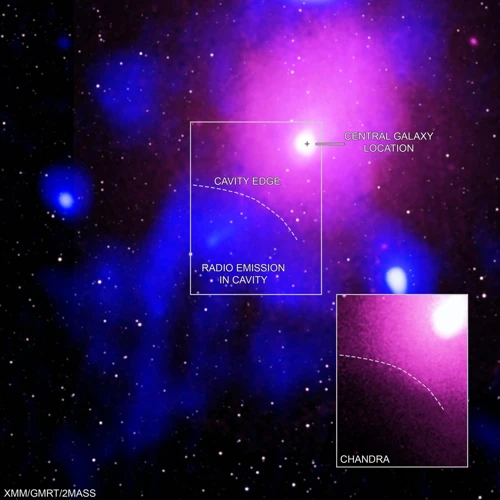
Ophiuchus, also known as the Serpent Bearer, is a constellation located in the southern sky. It lies between the constellations of Scorpius and Sagittarius and is often depicted as a man holding a snake. In Greek mythology, Ophiuchus is associated with the story of Asclepius, a skilled healer who possessed the power to bring the dead back to life. This constellation has been known to astronomers for centuries but has never been officially recognized as a zodiac sign in traditional astrology. The controversy surrounding Ophiuchus stems from a misunderstanding that it is a new addition to the zodiac. However, astrologers argue that the zodiac system, which is based on the movement of the Sun through twelve specific constellations, has remained unchanged for thousands of years. While Ophiuchus may have mythological and astronomical significance, it does not hold a place as a distinct zodiac sign in astrology. To delve deeper into the Ophiuchus controversy and its impact on the zodiac, let’s explore the valid arguments against its inclusion and the misunderstandings surrounding its significance. [Link: /shifting-astrological-landscape-ophiuchus-impact-zodiac/]
The Ophiuchus Controversy
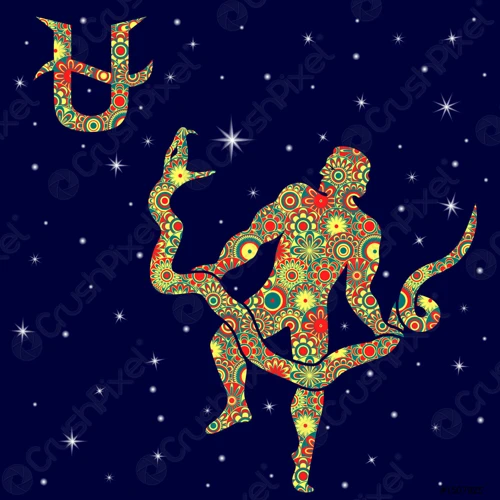
The Ophiuchus controversy revolves around the misconception that Ophiuchus is a new zodiac sign. However, this notion is far from accurate. Astrologers argue that the zodiac system has remained unchanged for centuries and consists of twelve signs representing specific periods of the year. Ophiuchus, although a constellation of significance in Greek mythology and astronomy, does not have a designated place in traditional astrology. Despite this, the inclusion of Ophiuchus as a zodiac sign gained attention and sparked debates among astrologers and enthusiasts. Some people believed that Ophiuchus should be part of the zodiac due to its position in the ecliptic and its potential influence on personality traits. However, many astrologers debunked these claims, stating that the Western zodiac is based on the Sun’s annual journey through twelve specific constellations, and Ophiuchus does not fit into this system. To analyze the reaction of astrologers and gain a deeper understanding of the controversy, check out our article on [Link: /analyzing-reaction-astrologers-ophiuchus/]
1. Why Ophiuchus isn’t a new zodiac sign
There are several reasons why Ophiuchus is not considered a new zodiac sign. Firstly, the zodiac system used in astrology is based on the positions of the Sun, Moon, and planets in relation to a set of constellations along the ecliptic, which is the apparent path of the Sun across the celestial sphere. This system has remained unchanged for thousands of years and consists of 12 signs: Aries, Taurus, Gemini, Cancer, Leo, Virgo, Libra, Scorpio, Sagittarius, Capricorn, Aquarius, and Pisces. Ophiuchus, while a constellation, is not one of these twelve signs.
Additionally, Ophiuchus does not fit within the established zodiac date range. Each zodiac sign is associated with a specific time period, typically lasting around a month. For example, Aries falls between March 21st and April 19th. Ophiuchus does not have its own designated time period within the zodiac, further solidifying the fact that it is not officially recognized as a zodiac sign.
It’s important to note that the idea of Ophiuchus as a new zodiac sign gained attention due to a misinterpretation of the zodiac system and the inclusion of a 13th sign. However, astrologers argue that the zodiac’s symbolic and archetypal meanings have remained constant, and the addition of Ophiuchus would disrupt this established framework. While Ophiuchus may have its own mythological and astronomical significance, it is not considered a new zodiac sign in the realm of astrology. [Link: /ophiuchus-zodiac-sign-personality-traits/]
2. Misunderstanding of Ophiuchus’ role in astrology
The misunderstanding of Ophiuchus’ role in astrology stems from the assumption that it is a newly discovered zodiac sign that should be included in horoscopes. However, astrology is based on the twelve zodiac signs that have been used for centuries. Ophiuchus, although an interesting and significant constellation, does not fit within the established zodiac system. Astrologers argue that adding Ophiuchus as a new zodiac sign would disrupt the entire astrological framework and render previous horoscope readings invalid. The characteristics and personality traits associated with Ophiuchus are not well-defined and widely agreed upon, which further complicates its inclusion in astrology. Thus, it is essential to differentiate between the rich mythology and astronomical significance of Ophiuchus and its role within astrology. While Ophiuchus holds its place in the celestial sphere, it does not have a direct influence on astrological interpretations and predictions. It is crucial to dispel the misconception that Ophiuchus is a new zodiac sign and understand its true role within the realm of astronomy rather than astrology. [Link: /analyzing-reaction-astrologers-ophiuchus/]
Ophiuchus and the Zodiac Dates
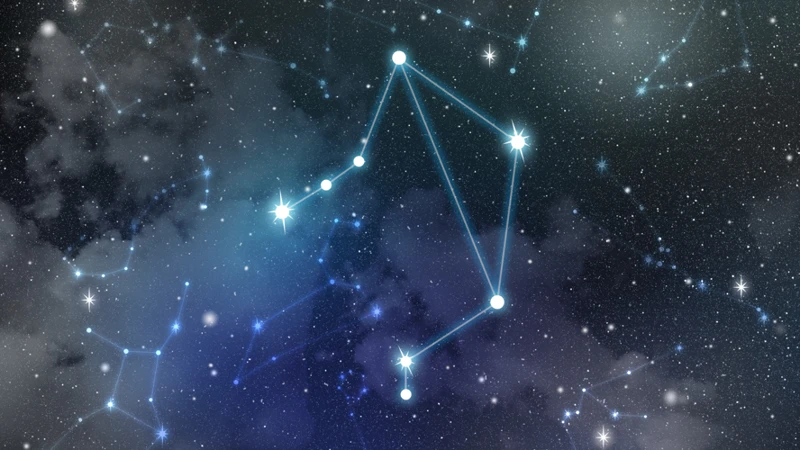
The inclusion of Ophiuchus in the zodiac has sparked a debate regarding the zodiac dates. Some individuals mistakenly believe that the addition of Ophiuchus would shift the dates for each zodiac sign, causing confusion and upheaval in astrology. However, this is a misunderstanding of the zodiac’s structure. The zodiac dates are determined by the annual path of the Sun across the ecliptic, and each zodiac sign is based on the position of the Sun on specific dates. Ophiuchus, despite its mythological and astronomical significance, does not alter the position of the Sun or affect the existing zodiac dates. The dates associated with each zodiac sign remain consistent, and Ophiuchus exists outside the established zodiac system. Understanding this clarification is crucial to avoiding misconceptions about the influence of Ophiuchus on the zodiac.
1. The Ophiuchus inclusion debate
The inclusion of Ophiuchus in the zodiac has been a topic of heated debate among astrology enthusiasts. Some argue that Ophiuchus should be recognized as a thirteenth zodiac sign, as it lies along the ecliptic and its position corresponds to a specific timeframe in the calendar year. Advocates for its inclusion believe that Ophiuchus brings a new dynamic and adds depth to astrological interpretations. However, traditional astrologers and skeptics counter this argument by asserting that the zodiac system has remained unchanged for centuries, and any attempt to add Ophiuchus as a new sign would disrupt the existing astrological framework. They maintain that the twelve zodiac signs have been deeply ingrained in astrology and have a long history of interpretation and study. Additionally, the Western astrology system follows the tropical zodiac, which is aligned with the seasons and their corresponding signs. The Ophiuchus inclusion debate is not just about the astronomical position of the constellation but also about the preservation of astrological traditions and the interpretation of celestial influences. With ongoing discussions and differing opinions, the controversy surrounding Ophiuchus and its place in the zodiac system continues to captivate astrologers and astrology enthusiasts alike.
2. Misinterpretation of the zodiac date range
One of the common misconceptions regarding the zodiac dates is the misinterpretation of the zodiac date range. Each zodiac sign is typically associated with specific dates, but there is often confusion when it comes to the exact boundaries of each sign. This confusion can lead to the belief that there is room for an additional sign like Ophiuchus. To clarify, the zodiac signs are based on the Sun’s position in relation to the Earth at specific times of the year. The dates associated with each sign have been established over centuries and are widely accepted in astrology. For example, Aries is often associated with the dates March 21st to April 19th, while Taurus is associated with April 20th to May 20th. The misconception arises when individuals assume that the dates must align perfectly with the constellations, which isn’t the case. The zodiac signs are symbolic representations rather than direct reflections of the constellations. There is no need for an additional sign like Ophiuchus, as the existing twelve signs effectively capture the range of dates and personality traits attributed to individuals born during specific times of the year.
The Symbolism of Ophiuchus
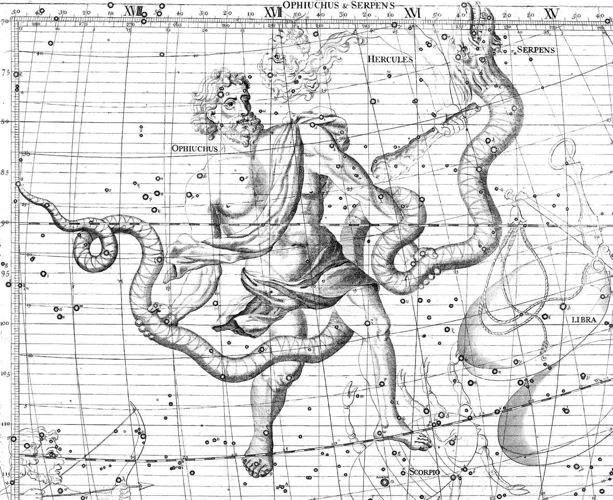
The symbolism of Ophiuchus is rooted in both Greek mythology and its celestial representation. In Greek mythology, Ophiuchus is often associated with Asclepius, the son of Apollo and a renowned healer. Asclepius was known for his ability to heal the sick and even bring the dead back to life. The symbol of Ophiuchus, a man holding a snake, represents the staff of Asclepius, which is widely recognized as the symbol of the medical field. The snake intertwining around the staff symbolizes rejuvenation, healing, and transformation. Celestially, Ophiuchus is positioned in the zodiac between Scorpius and Sagittarius, representing the delicate balance between life and death, as well as the pursuit of knowledge and wisdom. The symbolism of Ophiuchus, both mythologically and astronomically, holds rich layers of meaning and highlights the significance of healing and transformation in our lives. [Link: /ophiuchus-zodiac-sign-personality-traits/]
1. The Greek mythology behind Ophiuchus
The Greek mythology behind Ophiuchus is rich and fascinating. In ancient Greek lore, Ophiuchus is associated with the legendary story of Asclepius, the son of the god Apollo and a mortal woman named Coronis. Asclepius grew up to become a skilled healer, known for his ability to cure illnesses and even bring the dead back to life. This remarkable power eventually caught the attention of Hades, the god of the underworld, who became concerned that Asclepius’ ability to resurrect the dead would disrupt the natural order of life and death. In response, Zeus, the king of the gods, struck down Asclepius with a bolt of lightning, putting an end to his extraordinary healing abilities.
The symbol of Ophiuchus, the man holding a snake, is closely related to this mythological story. It is believed to represent Asclepius using a serpent as a tool for healing. Snakes were considered sacred in ancient Greek mythology and were associated with rebirth and renewal. The snake shedding its skin was seen as a metaphorical representation of healing and transformation. This symbolism connected Ophiuchus with the power of healing and medicine, making it an intriguing constellation in the realm of astrology.
While the mythology behind Ophiuchus is captivating, it is important to note that astrology is based on the twelve zodiac signs that have been traditionally recognized for thousands of years. The inclusion of Ophiuchus as a new zodiac sign is a misconception that has gained traction in recent times but is not supported by the historical framework of astrology. Understanding the rich Greek mythology that surrounds Ophiuchus enhances our appreciation for the constellation, but it does not redefine the structure and system of the zodiac as we know it.
2. Ophiuchus as a celestial symbol
Ophiuchus, beyond its association with Greek mythology, holds significance as a celestial symbol in the realm of astronomy. As a constellation, Ophiuchus represents a fascinating cosmic entity that adds to the richness of our night sky. Its positioning in the southern sky, sandwiched between Scorpius and Sagittarius, allows stargazers to observe the captivating interplay between these constellations. The serpent held by Ophiuchus, known as Serpens, is particularly intriguing. Serpens is divided into two parts, Serpens Caput (the snake’s head) and Serpens Cauda (the snake’s tail), which wind their way through the stars. This celestial representation of a man grappling with a serpent has captivated human imagination for centuries, inspiring various interpretations and artistic depictions. Whether seen as a metaphor for struggles with darkness and temptation or a symbol of healing and transformation, Ophiuchus as a celestial symbol invites contemplation and invites us to embrace the vastness and mystery of the universe. Its inclusion in discussions serves as a testament to the rich tapestry of mythology, science, and human curiosity that intertwine in our exploration of the cosmos.
Personality Traits of Ophiuchus
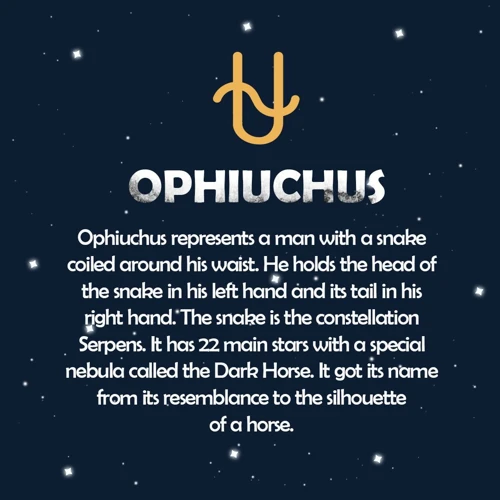
The personality traits attributed to Ophiuchus are often a subject of curiosity and speculation. While Ophiuchus is not recognized as a zodiac sign in traditional astrology, some people have attempted to assign specific traits to individuals born under this constellation. Since it doesn’t fit neatly into the traditional zodiac system, interpretations of Ophiuchus’ personality traits vary widely. Some suggest that Ophiuchus individuals are intuitive, wise, and have a strong sense of justice, inspired by the healer symbolism associated with the constellation. Others claim that they possess strong leadership qualities and a deep connection to nature. It is crucial to note that these interpretations are not based on any scientific or astrological evidence. Without widespread acceptance or acknowledgment from astrologers, attributing distinct personality traits to Ophiuchus becomes more of a personal belief or interpretation rather than an established astrological practice. For an in-depth analysis of the alleged personality traits of Ophiuchus, [Link: /ophiuchus-zodiac-sign-personality-traits/] explores different perspectives and theories surrounding this topic.
Ophiuchus and Astrology Compatibility

Ophiuchus and astrology compatibility have been subjects of intrigue and speculation among astrology enthusiasts. Some have questioned how individuals born under the supposed Ophiuchus zodiac sign would interact with other traditional zodiac signs. However, it’s essential to understand that Ophiuchus is not officially recognized as a zodiac sign in astrology. Astrology compatibility is based on the alignment of the Sun, Moon, and planets at the time of an individual’s birth, within the established zodiac system. As Ophiuchus does not fall within the recognized zodiac framework, there are no specific guidelines or interpretations for how it would interact with other signs. It is crucial to focus on the traditional twelve zodiac signs when considering astrology compatibility, as they have been studied and analyzed for centuries. [Link: /ophiuchus-zodiac-sign-personality-traits/]
1. Compatibility with other zodiac signs
1. Compatibility with other zodiac signs:
When it comes to compatibility with other zodiac signs, Ophiuchus is often a subject of curiosity due to its supposed inclusion as a new zodiac sign. However, since Ophiuchus is not officially recognized in astrology, there are no established compatibility traits specifically associated with this constellation.
In traditional astrology, compatibility between zodiac signs is based on the elements (fire, earth, air, and water) and the modalities (cardinal, fixed, and mutable). Each zodiac sign is believed to have certain characteristic traits and tendencies that can influence how well they get along with other signs.
While Ophiuchus may not have defined compatibility traits, it is worth noting that people who were previously assigned a zodiac sign may possess personality traits that align with Ophiuchus. For example, those born between November 29th and December 17th (the proposed dates for Ophiuchus) may exhibit qualities attributed to Sagittarius or Scorpio, depending on the specific date.
It’s important to remember that individual personality traits, experiences, and other astrological factors, such as the positions of planets at the time of birth, also contribute to the overall compatibility between individuals. Compatibility in relationships is a complex and nuanced subject that cannot solely rely on zodiac signs or constellations.
While it’s intriguing to consider the compatibility of Ophiuchus with other zodiac signs, there is no concrete data or astrological principles to support such assessments. For a more accurate understanding of compatibility, it is advisable to consult a professional astrologer who can provide personalized insights based on individual birth charts.
2. Understanding the astrological implications
Understanding the astrological implications of Ophiuchus is crucial in dispelling the misconceptions surrounding this constellation. Despite its mythological and astronomical significance, Ophiuchus does not have a defined role in traditional astrology. The twelve zodiac signs that are widely recognized and used in horoscope readings, personality assessments, and compatibility analyses are based on the Sun’s position during specific times of the year. Each zodiac sign is associated with certain characteristics, traits, and meanings that have been developed and refined over thousands of years. Ophiuchus, on the other hand, does not have a distinct set of qualities or symbols that are unanimously accepted among astrologers. While some individuals may feel a personal connection to the concept of Ophiuchus and interpret its symbolism to align with their characteristics, it is important to recognize that this is a personal interpretation rather than a widely accepted astrological framework. It’s also worth noting that astrology is a complex and multifaceted field, with various branches and systems that differ in their approaches and interpretations. To understand the astrological implications of Ophiuchus, it is crucial to engage with reputable astrological sources, consult professional astrologers, and explore different perspectives within the field. By doing so, individuals can gain a more nuanced understanding of astrology and separate the valid concepts from the misconceptions surrounding Ophiuchus.
Ophiuchus and Horoscope Readings
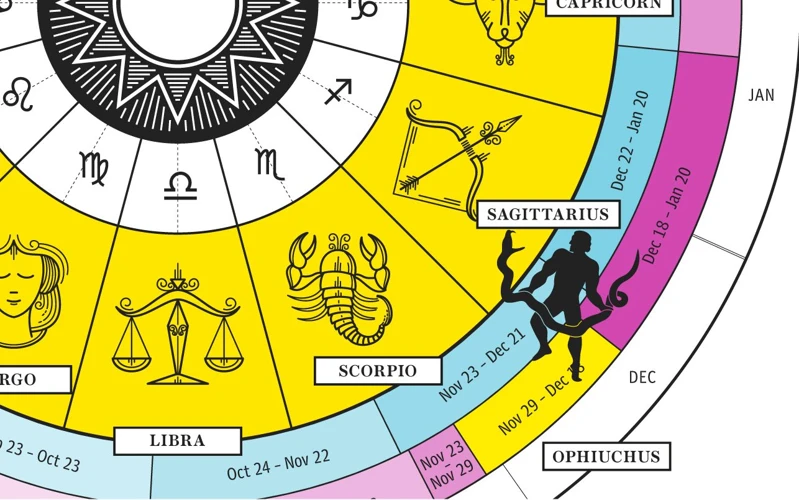
Ophiuchus, despite not being recognized as an official zodiac sign, has raised questions about its impact on horoscope readings. Some people wonder if their horoscope should be recalculated, considering the potential inclusion of Ophiuchus in the zodiac. However, it’s important to note that horoscopes are based on the position of the Sun at the time of birth, which falls within one of the traditional zodiac signs. As Ophiuchus is not a part of the zodiac system used in astrology, it does not affect the interpretation of individual horoscopes. It’s crucial to understand that astrology is a complex and nuanced practice, and it involves considering a multitude of factors beyond just the zodiac sign. Instead of focusing on the inclusion of Ophiuchus, individuals should seek to understand their true zodiac sign and explore the diverse aspects of their birth chart for a comprehensive horoscope reading. [Link: /recognizing-true-zodiac-sign/]
1. Impact on horoscope readings
The inclusion of Ophiuchus in the zodiac has sparked debates about its impact on horoscope readings. Some people question whether this newfound zodiac sign alters the interpretation of horoscopes and affects the accuracy of astrological predictions. However, it is essential to understand that horoscope readings are based on the alignment of celestial bodies at the time of a person’s birth, primarily the position of the Sun, Moon, and planets. These alignments are calculated within the established zodiac system, which consists of twelve signs.
Ophiuchus, despite its mythological significance and astronomical presence, does not have a designated place within this system. It does not play a direct role in shaping individual horoscope readings. The interpretations and insights provided by astrologers will continue to center around the twelve traditional zodiac signs that have been used for centuries.
It is crucial to recognize that astrology is a complex system that takes into account various factors beyond just the zodiac signs, such as planetary aspects, houses, and individual birth charts. These elements provide a more comprehensive understanding of an individual’s personality, traits, and potential influences on their life.
Ophiuchus does not have a direct impact on horoscope readings as it is not officially recognized as a zodiac sign within the established astrological system. Astrologers will continue to focus on the twelve traditional zodiac signs when interpreting horoscopes and providing insights into individuals’ lives.
2. Recognizing your true zodiac sign
Recognizing your true zodiac sign is essential in understanding yourself and your astrological influences. With the controversy surrounding Ophiuchus, it is important to clarify how to determine your true zodiac sign. The zodiac signs are based on the position of the Sun at the time of your birth. It is determined by the specific date range associated with each sign, which has remained consistent over the years. While Ophiuchus may have gained attention, it does not impact the established dates of the other zodiac signs. To know your true zodiac sign, you need to consult a reliable astrological chart or consult with an astrologer. They can accurately calculate your birth chart, which takes into account the exact time and location of your birth. This chart will reveal the Sun’s placement in one of the twelve traditional zodiac signs, allowing you to understand your astrological traits and influences accurately. Remember that astrology is a complex system, and it is best to consult a professional to determine your true zodiac sign and gain a comprehensive understanding of your horoscope.
Historical Context of Ophiuchus

The historical context of Ophiuchus dates back thousands of years and is rooted in ancient Greek mythology. In Greek mythology, Ophiuchus is associated with the story of Asclepius, the son of Apollo and a skilled healer. According to the myth, Asclepius possessed such remarkable healing abilities that he could resurrect the dead. This caught the attention of Hades, the god of the underworld, who became concerned that Asclepius’s power would disrupt the balance between life and death. In response, Zeus, the king of the gods, decided to punish Asclepius by striking him down with a thunderbolt. After his death, Asclepius was immortalized in the sky as the constellation Ophiuchus.
The historical significance of Ophiuchus extends beyond Greek mythology. It has been recognized and studied by astronomers for centuries, with its exact origins dating back to ancient Babylonian astronomers. The Babylonians referred to Ophiuchus as the “Serpent Holder” and associated it with their own mythology. They believed that the constellation represented the god Ningishzida, who had the power to grant immortality. Ophiuchus also holds significance in other cultures, such as Egyptian and Mayan astronomy, where it is associated with healing and medicine.
Despite its rich historical context and prominence in various ancient civilizations, Ophiuchus has never been officially recognized as a zodiac sign in traditional astrology. The zodiac system as we know it today has remained unchanged for centuries, with twelve zodiac signs that correspond to specific dates and astrological traits. Ophiuchus lies outside of this established zodiac framework and is considered a constellation in its own right.
Understanding the historical context of Ophiuchus helps to shed light on its symbolism and importance in different cultures. While it may have mythological and astronomical significance, it is important to recognize that Ophiuchus does not play a role in the traditional zodiac system used in astrology. [Link: /ophiuchus-zodiac-sign-personality-traits/]
The Ophiuchus Enigma
The Ophiuchus Enigma is a fascinating aspect of the Ophiuchus controversy. Many people are perplexed by the conflicting information and interpretations surrounding this constellation. One reason for the enigma is the lack of consensus among astrologers regarding the inclusion of Ophiuchus as a zodiac sign. Some argue that Ophiuchus should be recognized as the thirteenth sign, while others dismiss it as irrelevant. This divide within the astrological community adds to the confusion surrounding Ophiuchus.
Another aspect of the enigma is the misinformation and misconceptions attached to Ophiuchus. Some sources claim that Ophiuchus represents a shift in astrological dates, suggesting that individuals born between November 29th and December 17th should identify as Ophiuchus instead of their traditional zodiac sign. However, astrology is based on the tropical zodiac system, which is fundamentally tied to the Earth’s seasons and not directly linked to specific constellations. The zodiac dates remain the same, regardless of the existence of Ophiuchus.
The Ophiuchus enigma is also heightened by the lack of clarity surrounding the personality traits and compatibility associated with this supposed new zodiac sign. While some enthusiasts speculate on the unique characteristics of Ophiuchus individuals, there is no widespread consensus or established body of knowledge regarding their traits.
The Ophiuchus enigma arises from the conflicting opinions and misinformation surrounding its inclusion as a zodiac sign, its impact on astrological dates, and its associated personality traits. As the debate continues, it is important for individuals to critically evaluate the information available and understand the historical context and limitations of astrology. [Sources: /shifting-astrological-landscape-ophiuchus-impact-zodiac/, /ophiuchus-zodiac-sign-personality-traits/, /analyzing-reaction-astrologers-ophiuchus/]
Conclusion
In conclusion, the Ophiuchus controversy has caused a great deal of confusion and misunderstanding within the realm of astrology. While Ophiuchus may be a fascinating constellation with rich mythological and astronomical significance, it is important to recognize that it is not a new zodiac sign. The zodiac system, based on the movements of the Sun through twelve specific constellations, has remained unchanged for centuries. Astrologers argue that including Ophiuchus as a distinct zodiac sign would disrupt the longstanding astrological framework and render traditional interpretations obsolete. It is crucial to separate the symbolic and historical significance of Ophiuchus from its role in astrology. Understanding the true concepts and implications of astrology and the zodiac signs can help individuals gain a more accurate understanding of their personalities, compatibility, and horoscope readings. So, while Ophiuchus may spark curiosity and intrigue, it is essential to recognize the limitations and misconceptions surrounding its role in the astrological world. By debunking the common misconceptions about Ophiuchus, we can navigate the shifting astrological landscape with greater clarity and avoid falling prey to unfounded beliefs.
Frequently Asked Questions
1. Can Ophiuchus be considered a new zodiac sign?
No, Ophiuchus is not a new zodiac sign. Despite recent discussions and misunderstandings, traditional astrology has recognized twelve zodiac signs for thousands of years, and Ophiuchus is not among them.
2. What is the role of Ophiuchus in astrology?
Ophiuchus does not play a role in traditional astrology. The zodiac is based on the Sun’s position relative to twelve specific constellations. Ophiuchus, although a significant constellation in mythology and astronomy, does not have the same astrological significance.
3. Why is Ophiuchus not included in the zodiac dates?
The zodiac dates are based on the Sun’s apparent path through the sky over a year, dividing it into twelve equal parts. Ophiuchus lies along this path but has not been included as a distinct zodiac sign due to the historical and traditional alignment of the zodiacal system.
4. Is there a debate about including Ophiuchus in the zodiac?
Yes, there has been a debate about including Ophiuchus in the zodiac. Some argue that with the precession of the Earth’s axis, the alignment of the constellations has shifted and Ophiuchus should be recognized as the thirteenth zodiac sign. However, this viewpoint is not widely accepted in traditional astrology.
5. Are the zodiac date ranges misinterpreted?
Yes, the zodiac date ranges are often misinterpreted. Each zodiac sign is associated with specific dates, but these dates are approximate and can slightly vary depending on the year and the astrological system being used. It is important to consult accurate astrological resources for precise information.
6. What is the mythology behind Ophiuchus?
In Greek mythology, Ophiuchus is associated with Asclepius, a skilled healer who had the ability to revive the dead. Depicted as a man holding a snake, Ophiuchus symbolizes wisdom, healing, and transformation. Its mythological background adds to its allure, but it does not signify a zodiac sign.
7. What is the symbolic significance of Ophiuchus?
Ophiuchus holds symbolic significance as a celestial symbol representing healing, wisdom, and serpentine energy. It serves as a reminder of the rich mythology and astronomical wonders we encounter in the night sky, but it does not alter the established zodiac system.
8. Do personality traits differ for individuals born under Ophiuchus?
There is no established set of personality traits specific to individuals born under Ophiuchus. The zodiac signs have their distinct characteristics and interpretations. Ophiuchus, not being a zodiac sign, does not have assigned personality traits within traditional astrology.
9. Does Ophiuchus impact compatibility with other zodiac signs?
Ophiuchus does not impact compatibility with other zodiac signs as it is not officially recognized in astrology. Compatibility between individuals is determined by various factors, including the alignment of sun signs, moon signs, and other astrological influences, but Ophiuchus is not part of this analysis.
10. How does Ophiuchus affect horoscope readings?
Ophiuchus does not affect horoscope readings as it is not considered a zodiac sign in traditional astrology. Horoscope readings are based on the positions of the twelve recognized zodiac signs at the time of birth, and Ophiuchus is not taken into account in these calculations.

